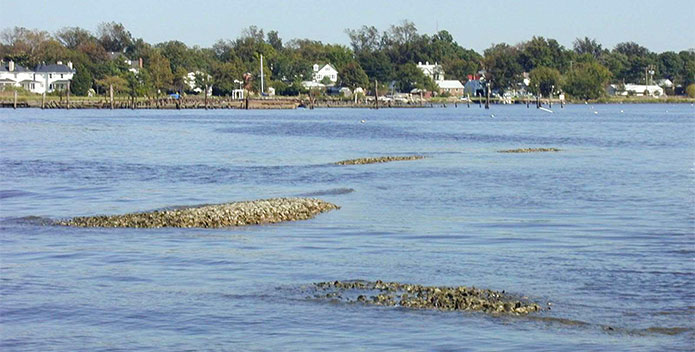The following first appeared in The Virginian-Pilot.
There is no doubt about it. It has been hot in Virginia this summer. Fortunately, in Hampton Roads when the temperature soars we can take to the water to beat the heat. Wading along the shoreline with friends and family, boating and fishing on the Lynnhaven River, kayaking on the Lafayette River—it's all part of what makes this region one of the best places to live in the country.
What's more, these beautiful waters are a major driver for our economy. They give us fresh seafood and million-dollar views, and are a magnet for tourists.
None of this would be possible without clean water. As The Pilot's Editorial Board pointed out recently, the Chesapeake Bay and its rivers are coming back "from the brink of environmental ruin" thanks to a partnership between the federal government and the bay states—the Chesapeake Clean Water Blueprint.
But this progress is under threat by President Donald Trump's proposed budget, which would eliminate funding for the EPA's Chesapeake Bay Program and imperil a host of other clean water programs. This could change our way of life here. Without clean water, we would lose a big part of what makes Hampton Roads so wonderful.
Local waterways are already seeing real benefits from federal programs. For example, a grant using Chesapeake Bay Program funds in 2010 kick-started efforts to clean up the Lafayette River. It supported everything from planting oysters, to educating residents about reducing pollution, to the installation of 20 stations to help people clean up pet waste to reduce bacteria levels. Thanks to a variety of efforts since then, the Lafayette has improved so much that last summer it was taken off the state's list of bacteria-impaired waterways.
The Chesapeake Bay Program is also coordinating efforts to restore the oyster population in the Lafayette and Lynnhaven rivers, with major support from the National Oceanic and Atmospheric Administration and the National Fish and Wildlife Foundation.
Dozens of acres of new oyster reefs have been built thanks to federal investment, the Army Corps of Engineers, and regional and local groups such as the Chesapeake Bay Foundation, Elizabeth River Project, and Lynnhaven River NOW. Soon the Lafayette could be the first river in Virginia to meet its oyster restoration goals.
Beyond this type of restoration work, federal support is also crucial to educating the next generation of Virginians. Environmental education gets students outdoors and connects them with the world around them. They learn how to be scientists on the water, monitoring water quality and identifying fish species. Studies have proven the many benefits of outdoor learning, from higher test scores to lower levels of stress and obesity.
The National Oceanic and Atmospheric Administration's Bay Watershed Environmental Training—also at risk under the president's budget—provides grants that help students learn about waterways and meet academic goals.
In just one local example, the program has supported Old Dominion University's work with Portsmouth City Schools to build observational buoys on the Elizabeth River that track water-quality data. This kind of hands-on learning is an unforgettable experience for these students and helps scientists better understand the health of the river.
These federal grants by the EPA and NOAA use matching funds from local organizations, meaning that every dollar invested by the government is nearly doubled. In other words, every budget cut does twice the damage, making it that much harder for bay states and communities such as ours to reduce pollution to our rivers and the Bay.
With so much at risk, we are fortunate that Hampton Roads leaders are working hard for our waters. U.S. Sens. Tim Kaine and Mark Warner have been defending the bay on Capitol Hill for many years. U.S. Rep. Bobby Scott recently planted oysters in the Lafayette River and vowed to ensure support for clean water. U.S. Rep. Scott Taylor is part of the ongoing fight in the House of Representatives for full funding of $73 million for the Chesapeake Bay Program. U.S. Rep. Don McEachin has urged continued bay restoration.
This bipartisan support is a testament to how vital waterways are to this region. But there is a long way to go before the bay is fully restored. For all of us who care, there is a lot that can be done. We can start by thanking our elected officials for their support of the Chesapeake Bay Program. To do this, Pilot readers can go to house.gov and enter their ZIP code to find contact information for their congressional representatives. Calling or emailing can make a difference.
We know that the Chesapeake Clean Water Blueprint is working, and we're already seeing successes here in Hampton Roads. Keeping our water clean means much more than cooling off on a hot summer day. It's about preserving our way of life for our children and grandchildren.



